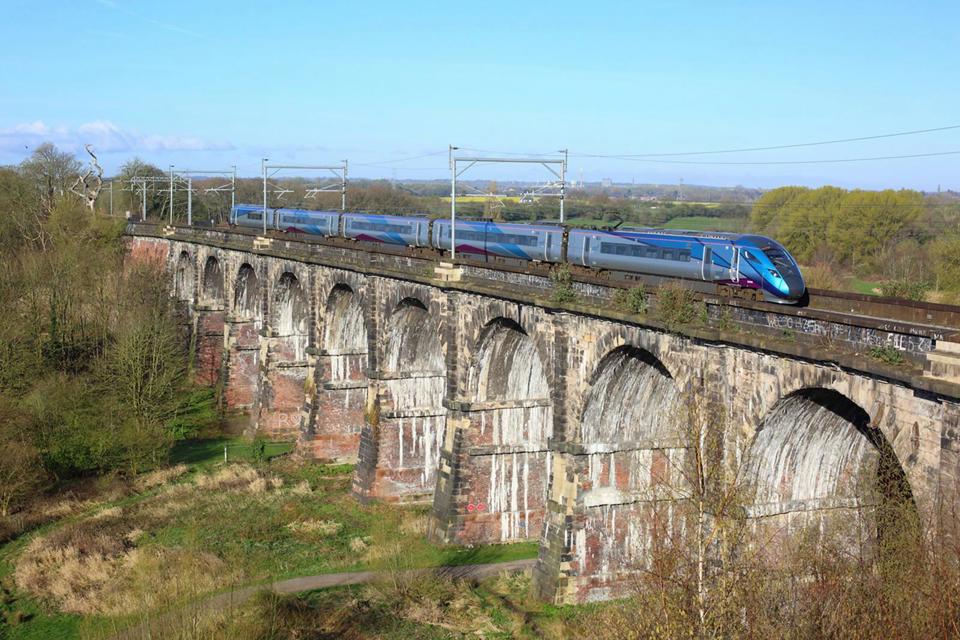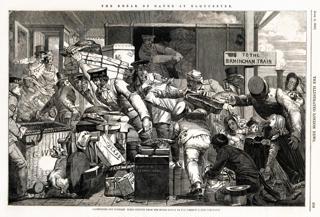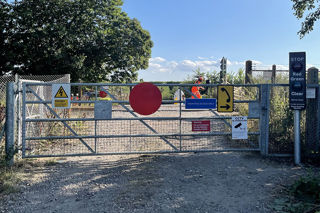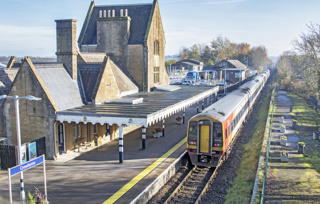Ian Tucker compares the rail policies of the two main parties fighting the election on July 4th.
At the Bradshaw lecture in February, Conservative Rail Minister Huw Merriman and Labour’s shadow counterpart Stephen Morgan set out their opposing visions.
Ian Tucker compares the rail policies of the two main parties fighting the election on July 4th.
At the Bradshaw lecture in February, Conservative Rail Minister Huw Merriman and Labour’s shadow counterpart Stephen Morgan set out their opposing visions.
At the same time, we had the Rail Reform Draft Bill, which contained a degree of apparent consistency between the parties’ positions (both were basing the future on a form of Great British Railways), as well as core differences (including around whether there would be an expectation of private sector involvement).
The Conservatives and Labour have now set out their stalls more fully on rail reform, with headlines suggesting that the proposals are diametrically opposed.
Labour would return train operating companies (TOCs) to public ownership, while the Conservatives would see TOCs continuing to operate as private entities pursuant to Passenger Service Contracts (which might in fact see these companies granted greater freedoms than under current operating arrangements).
In fact, the proposals have a great deal in common. Each raises a number of queries as to how the principles they describe would be implemented in practice. The paragraphs below draw out extracts from the proposals on a series of common issues, highlighting key themes and questions arising.
Ownership of passenger operators: key difference
The Conservatives envisage privately owned TOCs operating services pursuant to Passenger Service Contracts (PSCs).
Under the existing regime of National Rail Contracts, the government assumes revenue risk (in contrast to the preceding franchise agreement regime, where this risk was held by TOCs).
The Conservative vision contemplates a move towards greater freedom for private TOCs in certain circumstances.
Labour would bring the TOCs into public ownership, presumably in a manner similar to the Department for Transport’s Operator of Last Resort, as the current contracts expire. This may include where contracts have a base term with extensions or a break clause.
Great British Railways: key similarity
The two proposals are almost indistinguishable in their description of the roles of GBR, albeit that the Williams-Shapps Plan for Rail adopted by the Conservatives (being significantly longer) includes more detail.
Both appear to agree that GBR will:
- Own rail infrastructure.
- Set fares and receive fare revenue.
- Procure passenger services.
- Operate timetabling.
- Utilise a regional structure, devolving decision-making.
- Take a long-term view (for example, a 30-year strategy).
On this basis, it may well be that a Labour government would be minded to retain much of the draft Rail Reform Bill that contemplates the creation of GBR.
The source of reliability: a similar mind shift but a difference in focus?
Both parties look to the GBR ‘guiding mind’ to improve reliability while driving efficiencies.
For the Conservatives, GBR will drive improvements in reliability by looking to shift TOC focus away from blame attribution towards prevention.
Labour will look to GBR at the helm of a unified network to provide holistic solutions, aligning the agenda of infrastructure management and passenger operations in the pursuit of reliable service.
Fares reform: similar principle but a difference in practice?
The parties are united in their ambition to reform ticketing, simplifying the system and innovating with new products.
The proposals are similar in principle. However, how each government would choose to achieve this is critical to passenger experience. And this remains unclear.
Conservative governments have had a long period of time to simplify and innovate, but innovations are only now beginning to appear on an incremental basis.
Labour ambitions may be wide-reaching, but they have yet to be tested on the realities of who wins and who loses.
Service quality: a shared goal but a difference in who to ask to implement it
The Conservatives look to the private sector to drive a focus on quality, steering the focus of each TOC via commitments set out in each PSC.
Labour has set out a number of tangible quality markers that it will seek to achieve. The mechanism that Labour would deploy to incentivise service quality across each region is not described in detail.
Both parties therefore are looking to specify particular improvements (markers and commitments), but are potentially asking different entities to deliver them.
Accessibility: some space for an audit and development of actions
It is expected that accessibility will prove a key agenda item for both parties.
Under current plans, Great British Railways will be given a statutory duty to improve accessibility, building upon the existing work of the Office of Rail and Road (ORR) in this space.
A comprehensive audit of network accessibility would be conducted to provide robust, consistent and detailed information across the full range of facilities and standards, leading to a national accessibility strategy.
The GBR Transition Team has established a National Rail Accessibility Group to address this role.
It seems likely that Labour would carry this work on through GBR. The intention would be to use a whole rail network approach and input from local authorities, to better target investment to raise accessibility standards. At this point, therefore, this is also likely to require further review to add more specificity.
Safety: consistency in regulation and priority
Neither party proposes material changes to safety standards and regulation. Both expect ORR to continue to deliver the safety regulatory role.
One practical difference may be that ORR may come to behave differently as an organisation under Labour, if it loses much of the economic regulatory and approvals role it currently has and becomes more focused on the safety role.
Open access: a consistent welcome?
Both parties expressly contemplate an ongoing role for open access operations. This will be a key area of interest for private sector operators under either regime.
Labour notes that open access can play an important role within a rail system. Open access has a proven track record in driving competition and better passenger outcomes in countries where services are run predominantly by public operators.
Pre-Brexit, European law provided some in-built protections for open access, deeming this as a way of encouraging competition on rail networks.
UK law continues to enshrine these principles, but it would be open to a new government to amend the regulations if it wished.
Freight: high importance and statutory protection
Both parties acknowledge rail freight’s important contribution to the decarbonisation of the UK economy and envisage an ongoing role for private freight operators contracting for access with GBR.
Both envisage GBR having a statutory duty to promote rail freight.
Each also highlights a key issue for freight: the need for a stable suite of regulations enforced by an independent regulator.
To attract investment, freight operators need confidence that their rights and allocated paths will be respected.
It is less clear whether the ORR envisaged by Labour will have the clout to allocate capacity to freight where that would affect passenger service ambitions.
Labour addresses this on the basis that GBR would have an internal freight team to allow a single point of contact, plus an overall growth target for freight set by the Transport Secretary.
The Regulator: substantial but different changes for ORR and passenger groups
Both parties identify the need for a strengthened passenger watchdog.
Labour would introduce the new Passenger Standards Authority, while the Conservatives would strengthen the role of Transport Focus. Each proposal would entail certain passenger-serving regulatory roles being transferred away from ORR.
Both parties acknowledge that the private sector will continue to play a role operating independent services in the rail industry, whether as open access or freight operators. This will need regulatory protection and an appeals process.
In a reformed landscape where power is overwhelmingly aggregated with GBR, ORR will continue to have a role to play in ensuring that rail regulations are properly implemented.
It appears that the Conservatives envisage a wider role for ORR in keeping GBR to account (including financially).
Labour’s detailed position on this is not entirely clear, but it appears to envisage the Secretary of State and passenger representatives (and freight commitments) combining to ensure that GBR is doing the best for the industry as a whole.
Overall
There is a distinct and obvious difference in tone and terminology between the parties, with Labour stressing nationalisation (which arguably has already taken place to a large degree), while the Conservatives continue to highlight the role of private sector delivery and customer focus.
Whether these differences are as substantive as they initially appear is not certain.
Key differences may lie in practical actions within the structure and in the ownership of operators - as well (potentially) as the regulator’s role.
However, both are behind a form of GBR, as well as a number of practical matters concerning the need to improve ticketing, access and quality while maintaining safety.
In a new government, both would also need to be much more specific.
Login to continue reading
Or register with RAIL to keep up-to-date with the latest news, insight and opinion.



















Login to comment
Comments
No comments have been made yet.